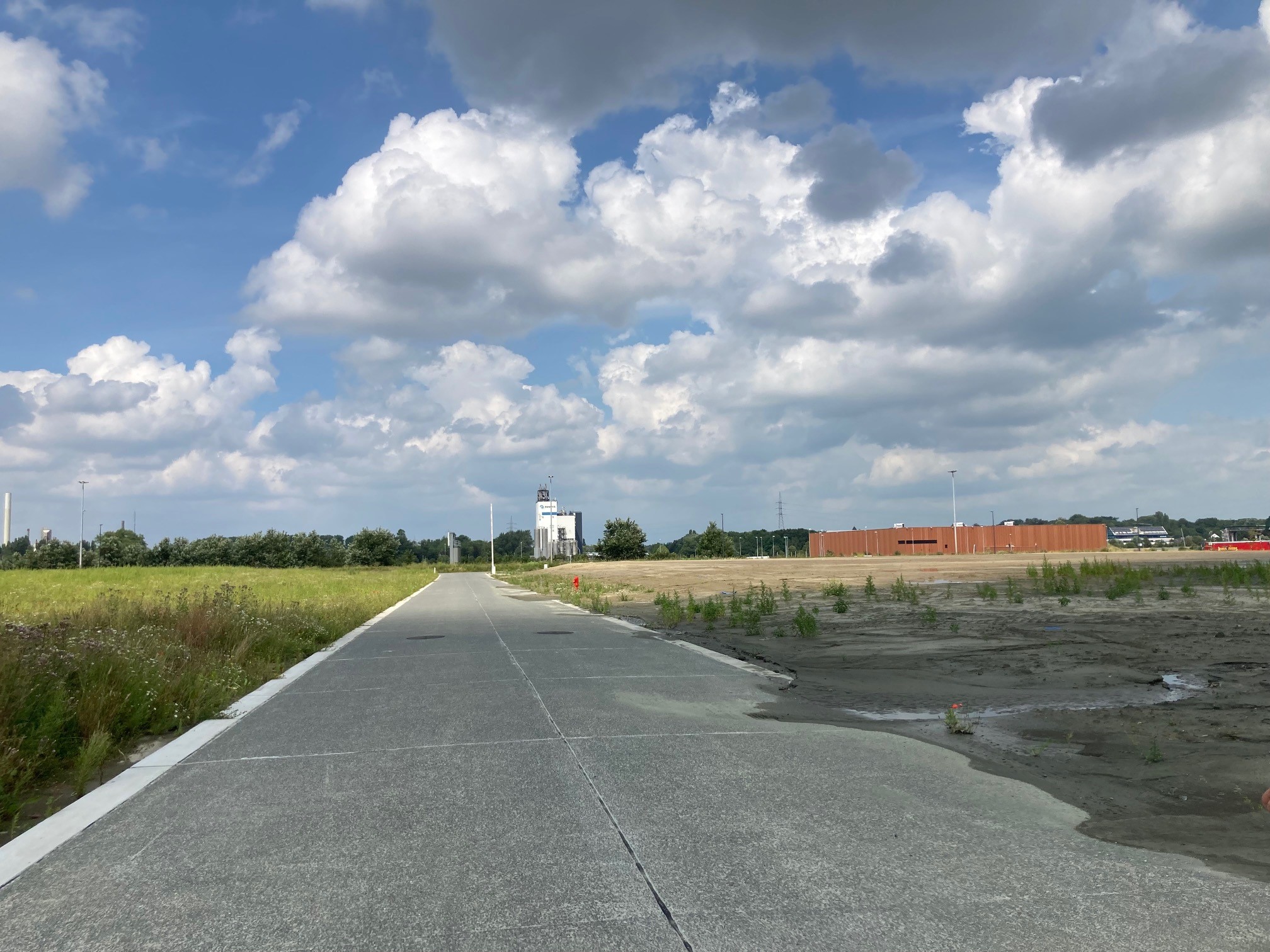Thessaloniki gets ready for its metro launch in November
The underground rapid transit lines have been under construction for almost two decades due to various project delays
 TheMayor.EU logo
TheMayor.EU logo Exie, a company that does thermal insulation, announced it will plant 2.3 hectares with the crop
On 13 July, Exie, a company making thermal insulation announced it will plant 2.3 hectares of industrial hemp on Ghent’s Zwijnaarde island, to produce tons of carbon-negative building materials. Around 3.5 million energy-efficient and recyclable cannabis plants will dot the area around a couple of derelict construction sites and the E40 highway, providing the city with a circular product, capable of storing CO2.
Exie – a company specializing in hemp-based insulation is seeding a number of abandoned industrial estates along the E40 with lime hemp. This hemp variety is completely legal and is praised for its special quality as a sustainable building material. At the same time, the plant is non-mind-altering, which means there is no need to worry about poachers.
 The area where the industrial hemp is sown, Source: City of Ghent
The area where the industrial hemp is sown, Source: City of Ghent
Furthermore, the plants grow to about three meters in 100 days, making them very effective at controlling the natural growth of weeds, severely reducing the need for chemical management of the plantation.
Lime hemp is energy-efficient, recyclable, free of toxins, CO2-negative and completely bio-degradable. It also serves as a perfect CO2 sink, since when the plant is harvested and re-purposed it is not burned.
Exie is now starting to sow the hemp plants so that they can be harvested in the fall, perhaps in October. After harvesting, they will make beer from the flowers and insulation from the hard parts of the stem. The process of creating the insulation is ludicrously simple - the fibres are separated then lime is added and the mixture is dried in just half an hour.
A total of 2.3 hectares of land will be planted, good for about 3.5 million plants. Depending on the future plans for the derelict plots, it will be later assessed whether the cycle will be repeated next year.
If you want to keep up with how European cities and regions are changing, follow us on Facebook, Twitter and Instagram.

The underground rapid transit lines have been under construction for almost two decades due to various project delays

Now you can get your wine in Talence by paying directly in Bitcoin

That’s because the state has to spend money on updating the railway infrastructure rather than subsidizing the cost of the popular pass

Rethinking renewable energy sources for the urban landscape

The examples, compiled by Beyond Fossil Fuels, can inform and inspire communities and entrepreneurs that still feel trepidation at the prospect of energy transition

Now you can get your wine in Talence by paying directly in Bitcoin

The 10th European Conference on Sustainable Cities and Towns (ESCT) sets the stage for stronger cooperation between the EU, national and local level to fast track Europe's transition to climate neutrality.

At least, that’s the promise made by the mayor of Paris, Anne Hidalgo

The underground rapid transit lines have been under construction for almost two decades due to various project delays

At least, that’s the promise made by the mayor of Paris, Anne Hidalgo

Hostal de Pinós is located in the geographical centre of the autonomous region

Despite its church-y name, the district has long been known as the hangout spot for the artsy crowds

Urban dwellers across the EU are having a say in making their surroundings friendlier to people and the environment.

Forests in the EU can help green the European construction industry and bolster a continent-wide push for architectural improvements.

Apply by 10 November and do your part for the transformation of European public spaces

An interview with the Mayor of a Polish city that seeks to reinvent itself

An interview with the newly elected ICLEI President and Mayor of Malmö

A conversation with the Mayor of Lisbon about the spirit and dimensions of innovation present in the Portuguese capital














